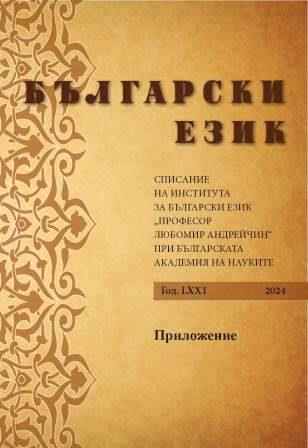Активни деривационни процеси при съществителните в руската реч, насочена към децата
Active Nominal Derivational Processes in the Russian Spoken to Children
Author(s): Maria D. VoeikovaSubject(s): Language studies, Language and Literature Studies, Theoretical Linguistics, Applied Linguistics, Morphology, Philology
Published by: Институт за български език „Проф. Любомир Андрейчин“, Българска академия на науките
Keywords: derivation; Russian language; child-directed speech; productivity; derivational model
Summary/Abstract: Colloquial Russian has a rich set of productive derivation patterns used in informal registers directed to children, other relatives, friends or pets. This paper considers the most frequent patterns in child directed speech (CDS), such as diminutives (knižka - book-Dim, pesenka - song-Dim) and hypocorostics (Saša -Alexander, Nataša - Natalia). The paper is based on the analysis of the speech of parents from two longitudinal speech corpora of one girl and one boy from 2 to 3 years old. Their mothers demonstrated some differences in their use of derivatives concerning their preferences (mostly diminutives or hypocoristics – types или в tokens) and frequency. Most derivatives used by both mothers served as models for the important derivational processes: suffix rivalry with the same stem (hypocoristics) and adding one and the same suffixes to different stems (diminutive formation). Since the differences between literary Bulgarian and Russian in this sphere have been already described by several authors it would be interesting to compare the frequency of diminutives and hypocoristics in CDS for both languages.
Journal: Български език
- Issue Year: 71/2024
- Issue No: Special
- Page Range: 314-327
- Page Count: 14
- Language: Bulgarian

